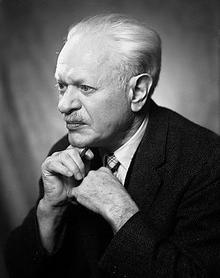A Quote by Charles Caleb Colton
Eloquence is the language of nature, and cannot be learned in the schools; but rhetoric is the creature of art, which he who feels least will most excel in.
Related Quotes
I believe it is no wrong Observation, that Persons of Genius, and those who are most capable of Art, are always fond of Nature, as such are chiefly sensible, that all Art consists in the Imitation and Study of Nature. On the contrary, People of the common Level of Understanding are principally delighted with the Little Niceties and Fantastical Operations of Art, and constantly think that finest which is least Natural.
When thou art quiet and silent, then art thou as God was before nature and creature; thou art that which God then wats; thou art that whereof he made thy nature and creature: Then thou hearest and seest even with that wherewith God himself saw and heard in thee, before every thine own willing or thine own seeing began.
The language of the heart--the language which "comes from the heart" and "goes to the heart"--is always simple, always graceful, and always full of power, but no art of rhetoric can teach it. It is at once the easiest and most difficult language--difficult, since it needs a heart to speak it; easy, because its periods though rounded and full of harmony, are still unstudied.
I just don't think people get off on language anymore. Language used to be an elevated art. It used to be for people what music can be. But people don't learn to do that anymore, so eloquence is merely a matter of waste. Who needs a good vocabulary and proper English? Eloquence - it's dead and who needs it?
The transition from Religion to Scientific contemplation is a violent, dangerous leap, which is not to be recommended. In order to make this transition, art is far rather to be employed to relieve the mind overburdened with emotions. Out of the illogical comes much good. It is so firmly rooted in the passions, in language, in art, in religion, and generally in everything which gives value to life. It is only the naive people who can believe that the nature of man can be changed into a purely logical one. We have yet to learn that others can suffer, and this can never be completely learned.
Art is a means of memorialization of the past, a record of a rapidly vanishing world; a means of exorcising, at least temporarily, the ravages of homesickness. To speak of 'what is past, or passing or to come'-in the most meticulous language thereby to assure its permanence; to honor those we've loved and learned from and must outlive.
There are many ways of writing badly about painting... There is an 'appreciative' language of threadbare, not inaccurate, but overexposed and irritating words... the language of the schools which 'situates' works and artists in schools and movements... novelists and poets [that] see paintings as allegories of writing.
It is justly considered as the greatest excellency of art to imitate nature; but it is necessary to distinguish those parts of nature which are most proper for imitation: greater care is still required in representing life, which is so often discoloured by passion or deformed by wickedness. If the world be promiscuously described, I cannot see of what use it can be to read the account; or why it may not be as safe to turn the eye immediately upon mankind, as upon a mirror which shows all that presents itself without discrimination.




































